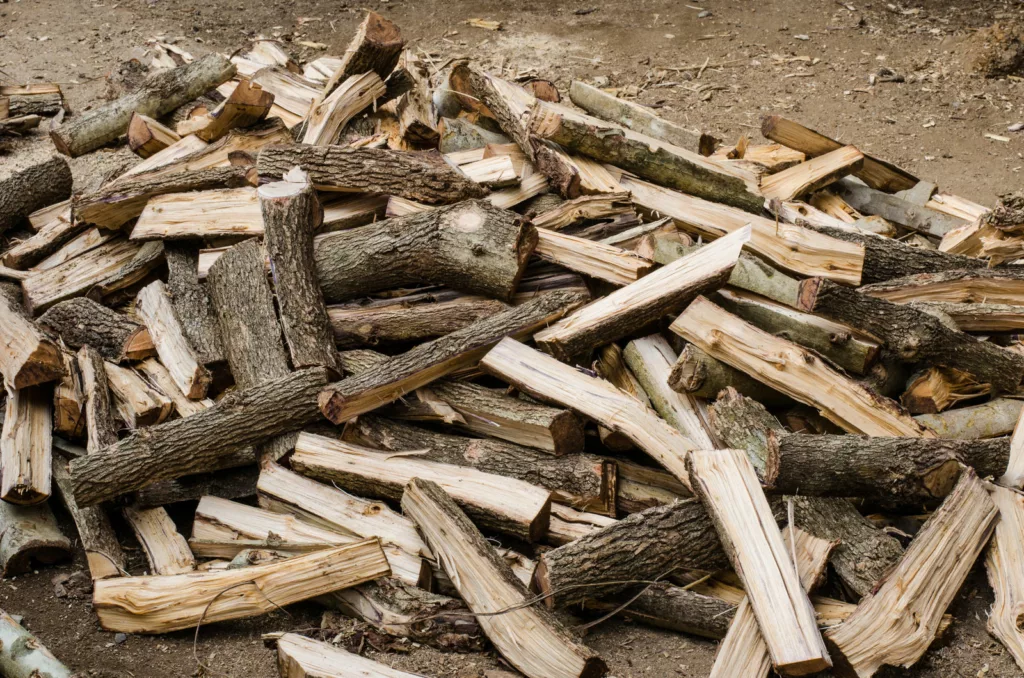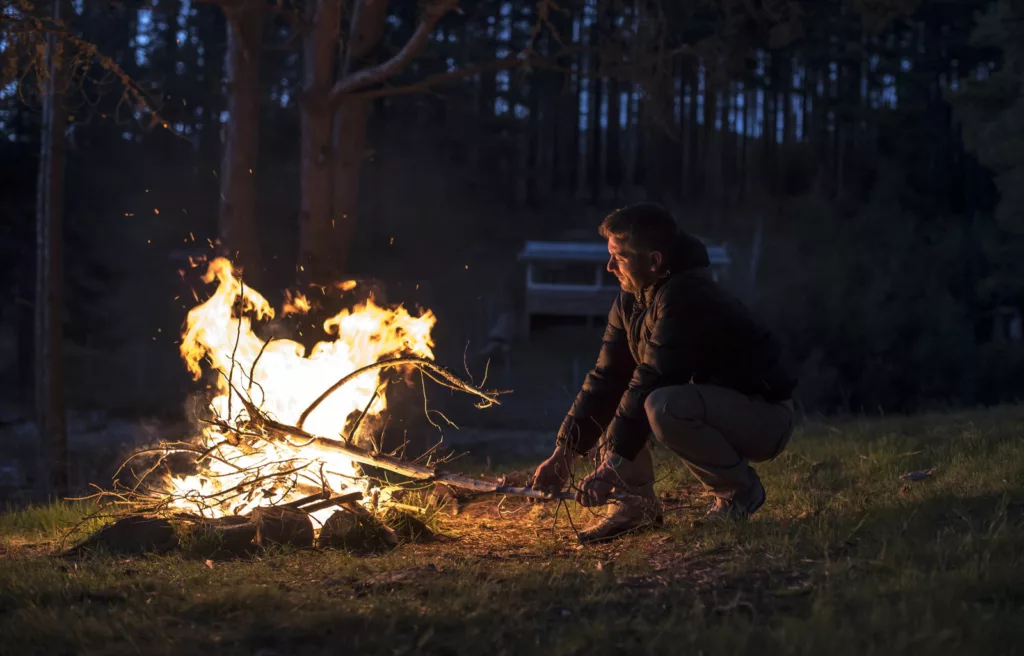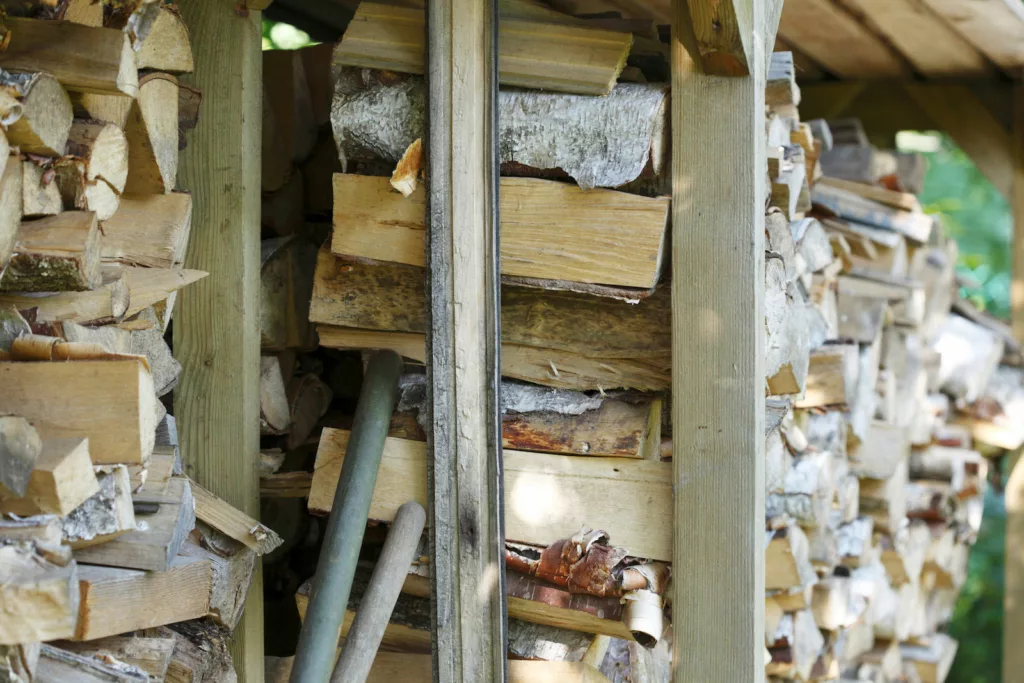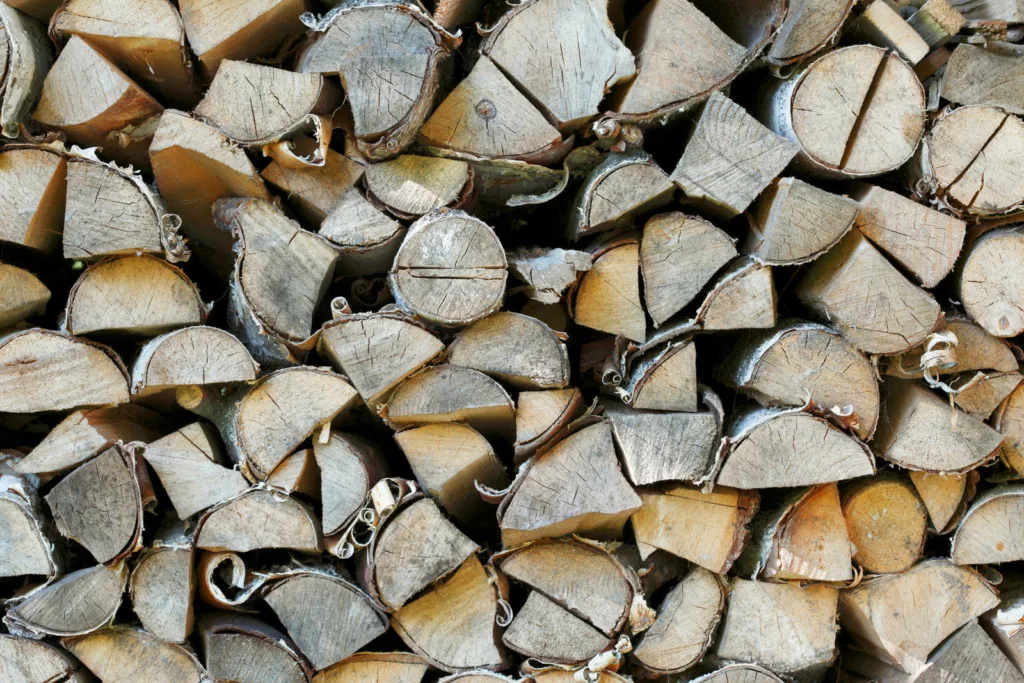What Causes Firewood To Pop? Firewood will often pop and crackle when burned. But if the sound is excessive or bothers you.
You should learn more about this phenomenon and prevent it from happening in the first place. If that’s the case, then keep on reading.
Why Does Firewood Pop and Crackle?
Firewood pops and crackles are mostly affected by three things:
- The type of wood
- The moisture content of the wood
- The efficiency of the Fire
Type of Wood

Pile of firewood
The type of wood you use will greatly affect the amount of popping and cracking you will hear. Wood that pops more tends to be softwood, such as pine or cedar, while hardwood, like oak or acacia, will give off fewer pops.
It is because softwoods often contain more sap content than hardwoods. The sap can expand and create blockages trapping the steam even more.
Further reading: What Firewood Pops The Most? – Tips For Choosing The Right Firewood
Moisture Content of the Wood
The moisture content of the wood is another factor that affects the popping sound. When wood has a high moisture content, it will produce more pops and crackles than when it’s dry.
According to the Environmental Protection Agency, the best way to ensure a good burn is to use seasoned hardwood with a moisture content of about 15-20%.
Adequately seasoned firewood in this range won’t struggle to burn and won’t burn too quickly that it is efficient.
The efficiency of the Fire
Firewood pops more or less depending on the efficiency of the Fire.
It means that when there is a good amount of oxygen getting to the Fire, it will make more popping sounds. It is because the combustion process is happening at a faster rate.
On the other hand, if your firewood has started to pop less, it could mean there is not enough oxygen getting to the Fire.
Is Popping Firewood Dangerous?

Man lighting a fire in nature.
Firewood that pops is more than likely not dangerous. It’s simply a sign that the wood has some moisture in it.
The sound isn’t dangerous, but sitting beside your fireplace can be annoying.
To help reduce the noise, you can use seasoned hardwood with a moisture content of about 15-20%. It is the recommended range by the Environmental Protection Agency, allowing you to burn your Fire more efficiently and without too much popping sound.
How To Stop Firewood From Popping
The easiest way to stop firewood from popping is to use kiln-dried firewood with low moisture content.
In addition to this, you could also try some of these ideas:
Store Your Firewood in a Dry Area

Stored firewood
If you plan on storing your firewood, ensure it’s stored in an area protected from rain or snow. Store your firewood under cover in an open shed or garage, so water doesn’t get on the wood.
Further reading: How to Cover Firewood: The Ultimate Guide
Test the Moisture Content of Firewood Before Burning
Firewood that’s too wet or too dry won’t burn well. But the fastest way to test the moisture content of wood is to use a moisture meter.
If you need to learn how to test it, you can always ask a professional at your local hardware store or lumberyard.
If you’re purchasing firewood, ideally, you want to buy firewood with a moisture content between 15% and 20%.
Use Kiln-Dried or Fully Seasoned Dry Firewood
Kiln-dried firewood is wood that has been dried in an industrial kiln. This process removes moisture from the wood so that it is ready to burn.
Fully seasoned firewood has been left to dry naturally for at least six months. During this time, the moisture content will have dropped as well.
Stick With Hardwood Varieties of Firewood

Closeup of chopped hardwood
Hardwoods include ash, mahogany, oak, and maple trees. They make for great firewood because they have very little moisture content.
Make Sure the Damper Is Open All the Way
If you have a fireplace or woodstove with an adjustable damper, ensure it’s open to allow more airflow.
Conclusion
Firewood popping occurs naturally due to moisture content heating up in the wood. While it can be annoying sometimes, it’s nothing to be worried about.
However, to reduce the popping sound, you can always try using better kiln-dried firewood or some other methods outlined in this blog post.
